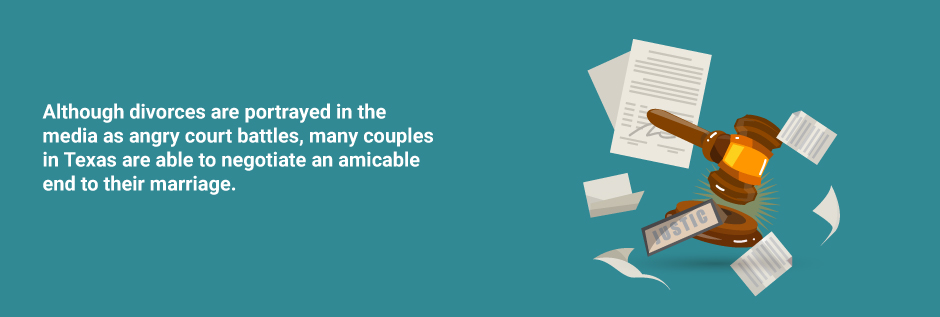How Social Media Can Be Used Against You in a Texas Divorce
Social media platforms like Facebook, Instagram, and Twitter have become the Internet version of the corner bar or coffee shop. We use it to check in with friends and family, talk about what’s going on in our lives, and show lots of pictures.

While social media can be a great way to stay in touch with people, especially if you don’t see them every day, using it puts a lot of personal information online. If you ever appear before a family court judge in Texas, that information could be used against you, regardless of whether you adjust your privacy settings or delete the posts.
Texas allows no-fault grounds for divorce, so the courts are no longer required to decide if your spouse’s social media antics were so offensive and egregious that you should be granted a divorce. That said, the way you use Facebook and Twitter can affect certain issues connected to the divorce action.
An Amicable Divorce Can Become Adversarial if Social Media is Used Negatively

Although divorces are portrayed in the media as angry court battles, many couples in Texas are able to negotiate an amicable end to their marriage. Provided that they agree on key issues like spousal maintenance, child custody and support, and division of marital property, they can keep their divorce out of court until it’s time for the judge to issue the divorce decree.
It’s a mutually beneficial arrangement that can change if one of the spouses behaves badly on social media. Examples include:
- Saying disparaging things about their spouse and/or the spouse’s friends and family
- Showing off a new love interest on their Facebook or Instagram account
These indiscretions can inspire retaliation, especially if the other spouse never really wanted the divorce in the first place. Seeing a person they still love enjoying fancy restaurant dinners or Caribbean vacations with a new partner can make them angry enough to drop out of an amicable divorce process like collaboration or mediation and take the more expensive litigation approach.
You Can Undermine Your Case Financially

Although it is now second nature to share personal and professional news on our social media accounts, doing so during a divorce can have unintended consequences. For example:
- You mention a new vacation that you intend to take to relieve some of the divorce stress. Your spouse or someone close to them sees the post, and next thing you know, your Financial Affidavit is being questioned.
- If you are claiming to be in serious financial need and require a certain amount of spousal or child support but your Facebook posts show you enjoying lavish nights out, your spouse or the court might suspect that you have hidden assets or, at the very least, are exaggerating your need for money.
You Could Jeopardize Your Bid for Custody

If you and your spouse cannot agree on a conservatorship and possession arrangement, Texas courts will issue an order that they believe is in the best interests of the children. If your social media posts suggest that you are mentally or emotionally unstable or regularly indulge in reckless behavior, your chances of a sole or joint conservatorship go down. For example:
- You complain that the divorce stress is causing you to drink every night.
- You express vengeful thoughts such as, “I wish someone would run (spouse’s name) over.”
- You boast about being promiscuous, even if you aren’t.
- You talk about self-harm. (“I can’t take this stress anymore. I should just jump off a bridge and be done with it.”)
You may only be venting, but the judge doesn’t know that. At the very least, this type of public venting can give the impression of poor self-control.
Contact the Wright Firm, LLP for Divorce Help

In 2018, it’s second nature to share information about our lives on social media. Unfortunately, when you’re undergoing a divorce, sharing can become oversharing and have several negative consequences. Your best strategy regarding social media and divorce is to speak to a Texas family law attorney who can advise you on how to achieve the best outcome in your matter.
At the Wright Firm, LLP, we understand the potential consequences of social media use during a family law case and can give you appropriate guidance so that you don’t risk a negative outcome in court. Divorce is an emotional yet complex process, and we will provide you with both strong advocacy and a confidential sounding board that can allow you to vent, process your feelings, and then heal. Contact us for a consultation to discuss your case.



Leave a Reply
Want to join the discussion?Feel free to contribute!